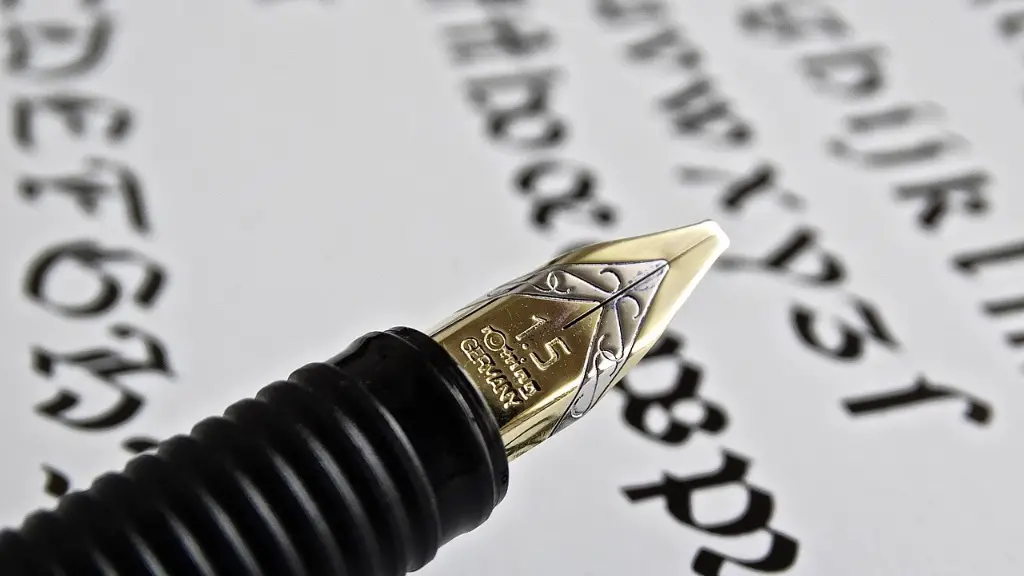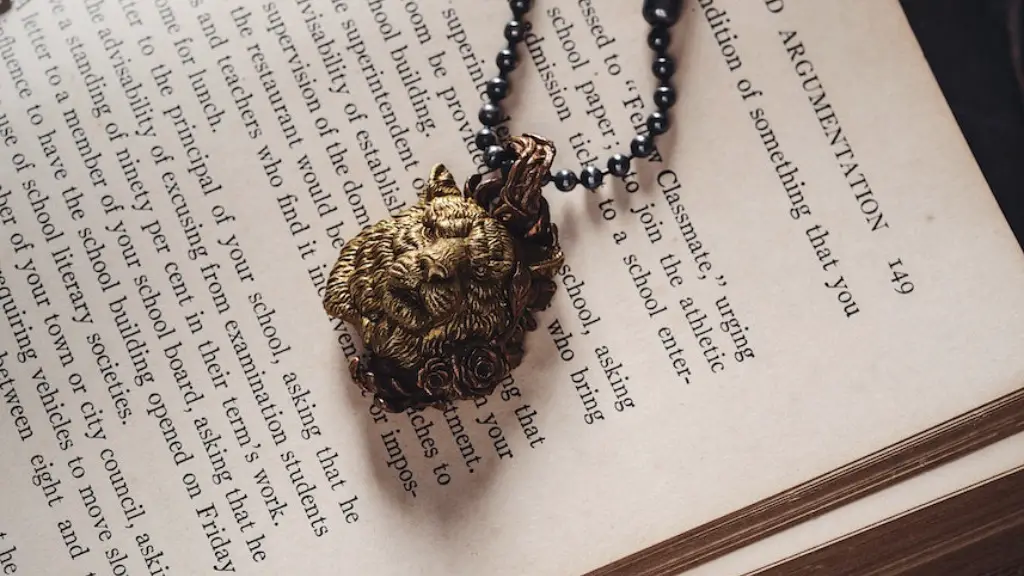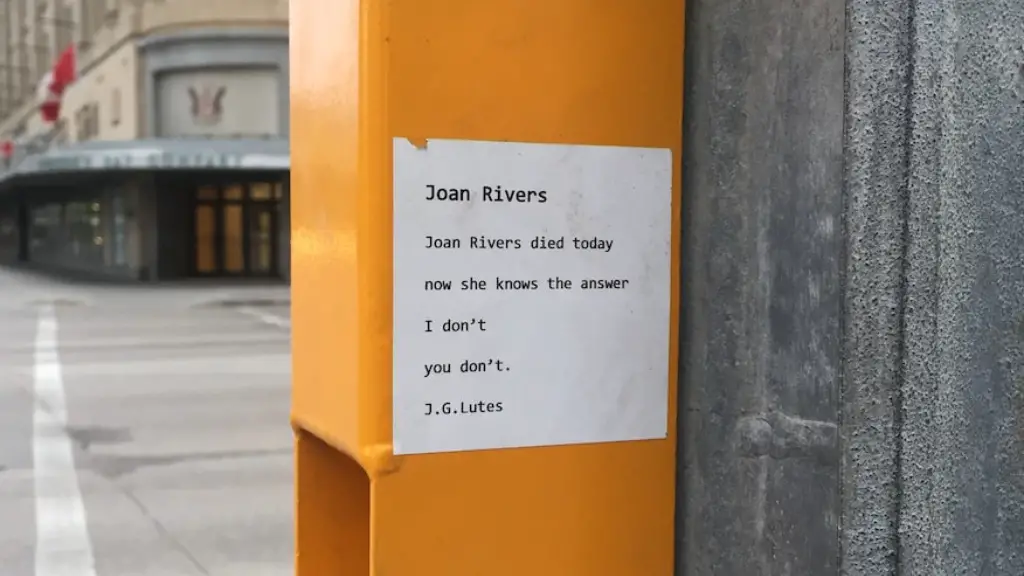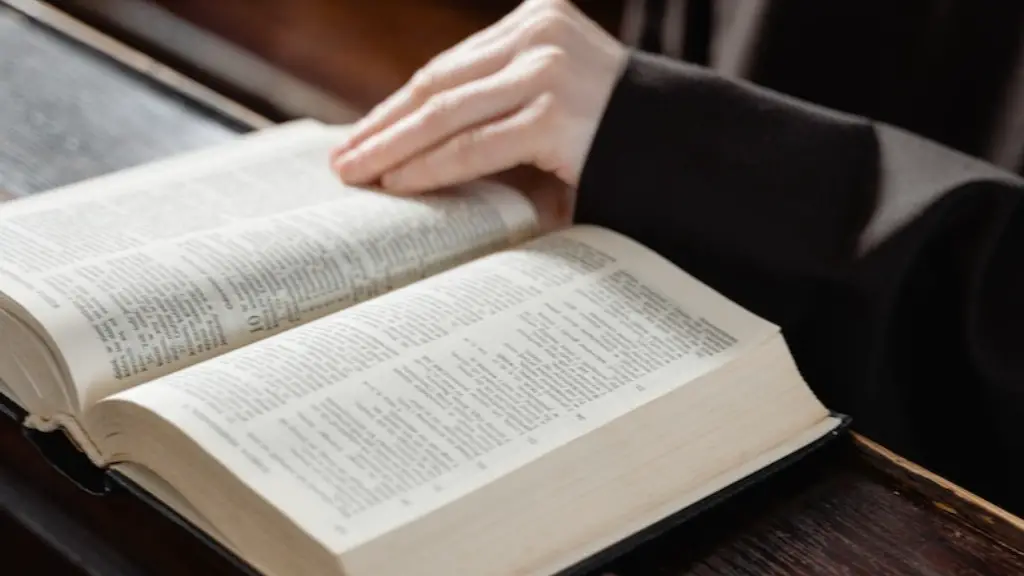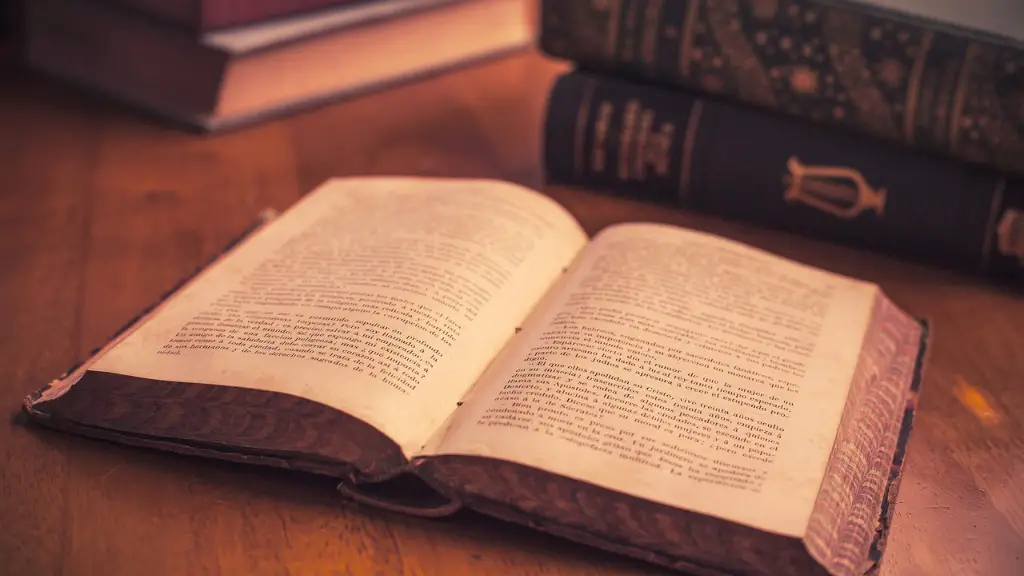The Concept of a Muse in Poetry
The concept of a muse in poetry dates back to Ancient Greek mythology. According to the mythology, the nine muses were daughters of Zeus and Mnemosyne, the goddess of memory. The muses were the source of inspiration for artists and poets, and any creative endeavour a person embarked on. The muses of literature and poetry were further personified as Thalia and Erato. Poets have sought inspiration from these muses ever since, but in modern times the concept has become a bit more abstract, with poets finding inspiration in virtually anything.
A muse is the collection of ideas, motivations and subjects which inspire a poet to create their work. These ideas, motivations and subjects vary from poet to poet, as inspiration can come from many different sources. Some sources of inspiration are external, such as nature, love, culture or politics. Other poet’s muses are internal, such as past experiences, thoughts, dreams, and emotions. Just as the great poets Homer, Sappho and Virgil were inspired by the muses, modern-day poets also use their own muses to help them create their poetry and find inspiration.
Most poets agree on one thing – that you cannot be a successful poet without having a muse. Many successful poets talk about their muses, describing them as a source of inspiration and motivation. Poets will often draw upon their muses to create powerful and moving poetry, weaving together images and words to create a beautiful piece. Without a muse, a poet is unable to access the creative flow that allows them to express their inner thoughts and feelings in a poetic way.
Moreover, experts believe that the concept of a poet’s muse is becoming more important in our digital world. As more and more information is available at our fingertips, it can be easy to become overwhelmed and shut down creatively. Without a muse, a poet can quickly fall into a creative rut and no longer find inspiration in their work. Having a muse can help a poet stay connected to their creative process and allow them to create meaningful art.
But it can be difficult to know where to start when looking for a muse. Some poets may have insights on what they want their muse to represent, but often times they are unable to articulate it clearly or have difficulty finding something that feels right. It is important for poets to explore different subjects and areas until they find something that resonates with them and opens up their creative flow. It could be something as simple as a feeling, a concept, or a person that is meaningful to them.
Ultimately, the concept of a muse in poetry is one that has been around for thousands of years and is still relevant today. With inspirations from both the external world and one’s own internal experiences, a poet’s muse can be an invaluable source of guidance and motivation. It is important for poets to seek out a muse, for it will help them stay connected to their creativity and create meaningful works of art.
Understanding the Origins of Poetic Muses
The concept of a muse in poetry has its roots in Ancient Greek mythology. According to the mythology, the nine muses were the daughters of Zeus, the king of the gods, and Mnemosyne, the goddess of memory. The muses were said to be the source of knowledge, arts and sciences, inspiring poets and inspiring creativity in any endeavour. In literature and poetry specifically, the muses were personified as Thalia and Erato, and they have been inspiring poets ever since.
Modern poets have continued to use the same concept of muses to help them create their works of art. While the sources of the muses have changed, muses continue to be an invaluable source of inspiration and motivation for poets. Poets will often point to a specific idea, emotion, concept or person as their muse, relying on it for guidance and motivation as they create their work.
In recent years, the concept of a muse has become increasingly important. In our digital world, people are constantly being inundated with a wealth of data, which can quickly lead to burnout and exhaustion. Without a muse to act as a creative compass, poets can find themselves stuck in a creative rut and unable to access their creative flow. By having a muse, poets are able to draw upon their muse’s guidance to help break out of these ruts and find inspiration for their work.
In order to draw upon the muse for inspiration, poets must first understand the source of the muse and its importance. Muses are incredibly personal and varied, coming from both external sources such as nature and culture and internal sources such as memories and emotions. Without understanding the muse, a poet will struggle to tap into it and access the creative flow that comes from it.
Just as the great poets of Ancient Greece sought guidance and inspiration from their muses, modern-day poets continue to rely upon them. By understanding the origin of the muse and recognising the importance of tapping into its creative flow, poets can create meaningful works of art that are inspired by the source of their muse.
Finding Inspiration from the Muse
In order to access the creative energy of the muse, a poet must first find their source of inspiration. This can be a daunting task, as it may not be immediately apparent what the source of inspiration is. However, if a poet is willing to explore and discover what resonates with them, they will eventually find a subject or concept that captures their attention and sparks their creativity.
Many successful poets have talked about their muses, describing them as a source of motivation and inspiration. Taking cues from these experts can provide a good starting point for a poet to explore what their muse is. Whether it is a feeling, a concept, a person or a memory, it is important for poets to explore and discover what resonates with them, for it can act as a powerful source of creativity.
In addition, exploring a variety of topics and subjects can help a poet find the source of their muse. Many poets have found that the muse may be lurking in an unexpected or seemingly mundane place, such as a childhood memory or a person that they have encountered. By exploring and discovering these sources, poets can access the creative flow from their muse and create beautiful works of art.
Moreover, tapping into the creative energies of the muse is not a linear process. For example, if a poet finds a source of inspiration and starts to create a work, this does not mean that the muse has been tapped into. It is important for a poet to continually explore and create, paying attention to what feels right and accessing the muse’s creative energies at every stage.
Ultimately, finding and tapping into the muse is an ongoing process. By exploring and discovering the source of their muse, poets can access its creative energy and create powerful and meaningful works of art. By constantly exploring and creating, a poet can access the creative flow of their muse and create meaningful works of art.
Appreciating the Powers of a Muse
The muse holds an incredible power for poets and should be respected and appreciated. Simply defining the muse as what inspires a poet is not enough. Muses can inspire, guide, and motivate poets in ways that cannot be articulated. In addition, a muse can represent something personal and meaningful to the poet and can be a powerful source of connection and creativity.
Experts suggest that in order for a poet to tap into the muse’s power, they must be open and accepting of their muse. They must be willing to be vulnerable and explore the depths of their muse, understanding its source and its power. When the muse is opened up and welcomed, the creative flow will open up and the poet will be able to access the creative energies they need to create meaningful works of art.
Furthermore, simply having a muse is not enough. In order for a poet to access its power, they must also be actively engaging with it. This means taking the time to explore, reflect, and create. It is only by actively engaging with the muse that a poet can access its power and create meaningful works of art.
Ultimately, the muse is the source of power, creativity, and inspiration for poets. When a poet understands and appreciates the muse, they can access its power and create meaningful works of art. By actively engaging with it, poets can tap into its creative energy and create powerful works that are inspired by the muse.
Channelling the Muses for Creative Writing
For poets looking for guidance and inspiration for their works, tapping into the muse can be a powerful tool. Channelling the muse can provide poets with the creative energy they need to access their creative flow, create meaningful works of art, and find their inner voice.
In order to channel the muse, poets must first be clear on what they wish to communicate in their works. This will provide a direction and focus for the creative energy of the muse. Once the focus is set, there are several tools and techniques that poets can use to access their muse’s creative energy.
One technique is free-writing, which involves writing down whatever comes to mind without any filter or judgment. This can help poets access their subconscious and discover the creative energy of their muse. Other techniques include visualisations or meditations, which can help poets connect to their muse on a deeper level.
Experimenting with different techniques can help poets access their muse’s powers and create meaningful works of art. Once a poet finds the technique that works for them, they can use it to access their muse’s creative energies and create powerful and meaningful works of art.
Conclusion
The concept of a muse in poetry has been around for thousands of years and is still relevant today. Muses are incredibly personal and vary from poet to poet, but all muses are a source of inspiration and motivation. By understanding the source of their muse and tapping into its creative energy, poets can create meaningful and powerful works of art. It is important for poets to explore, discover, and open up to their muse in order to access its power and create meaningful works of art.
